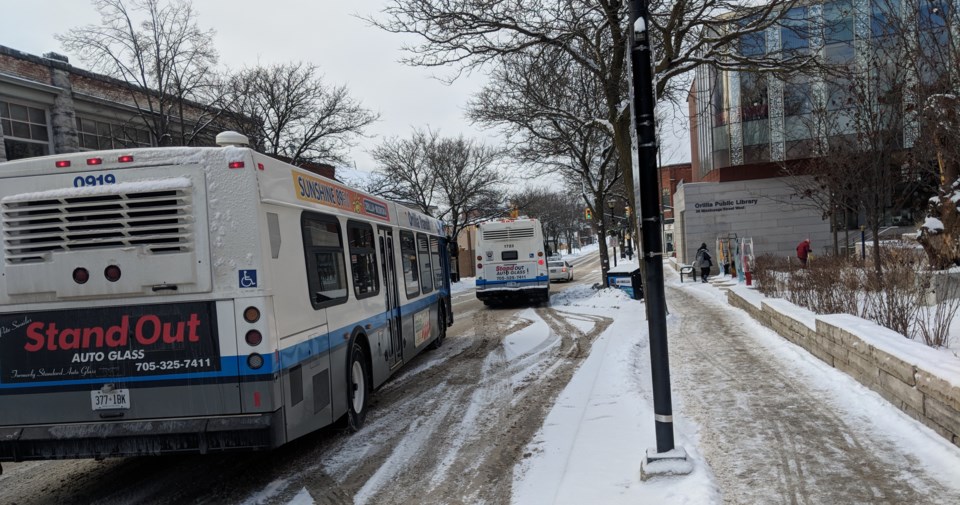Seniors will soon get a 15 per cent discount on local transit fares.
Council approved the rate reduction at budget deliberations this week — a move that will come with a price tag of $20,500.
The anticipated cost for the fare reduction was calculated by comparing Stats Canada demographic information for Orillia with the total number of transit riders, city staff explained.
The current economic climate was among the reasons councillors approved the fare reduction for seniors, with Coun. David Campbell calling the decision “a good first step.”
“A lot of communities offer free transit for seniors, and I realize there's a cost to that, so I think this is a good first step toward that goal,” he said. “People on fixed incomes, especially with the economic climate, are finding it more and more difficult and I think this would help a little bit.”
Other members of council agreed with the decision, but highlighted that other age groups are struggling to get by, as well.
“...For certain there's vulnerable seniors on fixed incomes (that) deserve help, but there's need right across the board,” said Coun. Tim Lauer. “There are people that are making minimum wage and have to take a bus … and I think they need as much help as seniors, so I'd be much more interested in a broader plan.”
Coun. Jay Fallis suggested applying discounts based on socioeconomic status, as opposed to age, but city staff said doing so would complicate the matter beyond what it could handle.
“It’s much simpler to deal with age, where people might either be evident in their age, or may be willing to disclose that by showing a driver's license or some other form of ID,” said Ian Sugden, the city's general manager of development services and engineering.
“Asking for proof of income or need is a much more sensitive subject. We don't actually have the staff resources to be able to review those in detail.”
During this week’s budget deliberations, council also considered reducing transit service during off-peak hours. The move was narrowly defeated in a 5-4 vote.
The proposed changes would have seen transit reduced to hourly service all day on weekends, and on weekdays from 6:15 a.m. to 7:15 a.m., as well as 7:15 p.m. to 10:15 p.m..
The move would have resulted in $300,000 in savings, which would have helped to reduce the 2023 tax levy.
Coun. Janet-Lynne Durnford expressed concern about reducing the availability of what she considers an “essential service.”
“I have concerns about pulling this level of funding from what I believe to be an essential service, and … we do hear that our transit system is not necessarily meeting the needs of our citizens,” she said.
“If we are reducing those service levels and recovering $300,000, I would prefer that that go into a reserve fund and that we strike a working group to address concerns with transit,” she said.
Fallis agreed, and said he has had discussions with residents who would like to see hours extended, not cut back. Coun. Luke Leatherdale similarly expressed concern about cutting transit hours as the city grows.
Mayor Don McIsaac, however, said the city’s data supports reducing service in the early mornings, evenings, and weekends, when usage drops considerably.
“The usage drops significantly at night, and I think, to go from half an hour, wall-to-wall service from six in the morning to 10 at night is a luxury that … we're at the point we can't afford,” he said.
“I think we should put (the savings) to the levy, and if we can think of a better way to spend money on transit going forward, we should make that argument," said the mayor.
“This money doesn't belong to transit. It's the public’s money and we should spend it wisely,” McIsaac continued. “If we can find a reduction that will still provide the level of service that people require then I think we should do that.”
Coun. Whitney Smith agreed, noting the empty buses she sees around the city at night.
“Seeing the data, obviously, the buses are not being used at that time in the night,” she said. “I started to just pay attention as I was travelling through the city, and (consistently) the buses were empty more often than not, so I definitely support this.”
All decisions made during budget deliberations are subject to ratification at a special meeting later this month.
